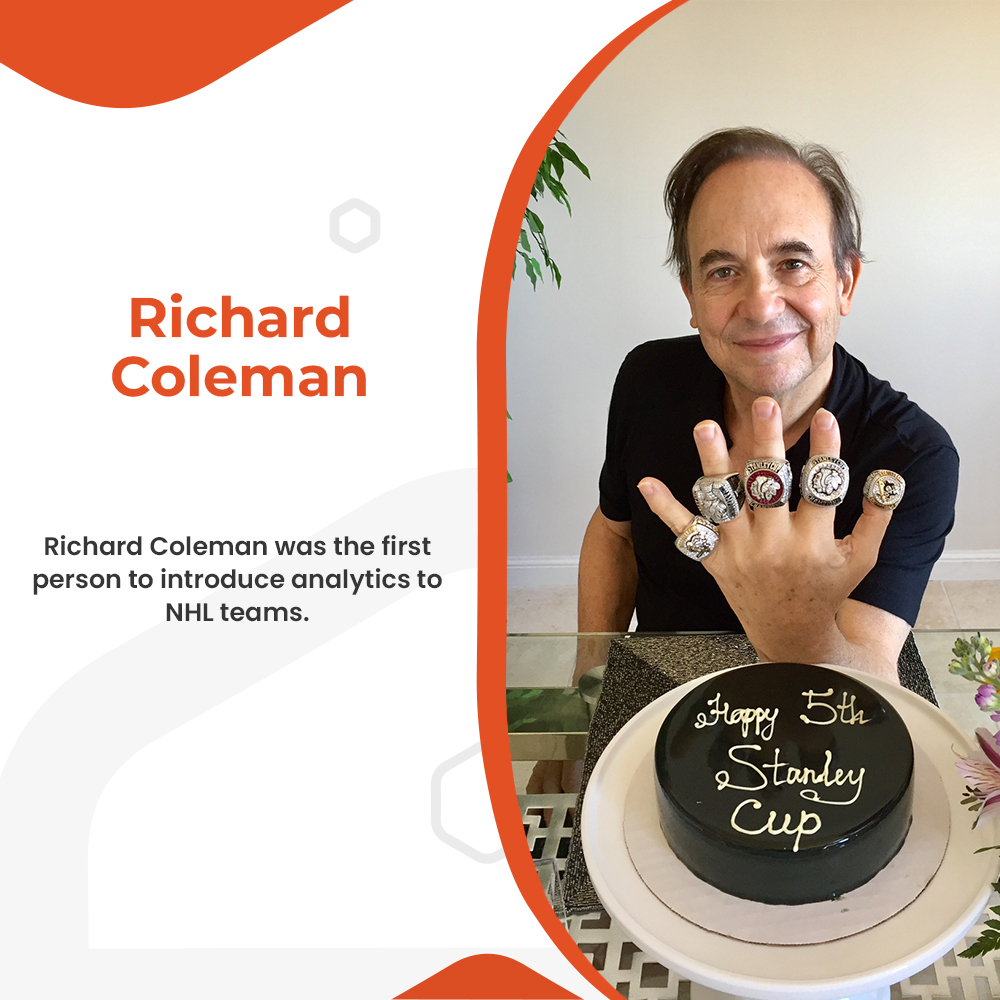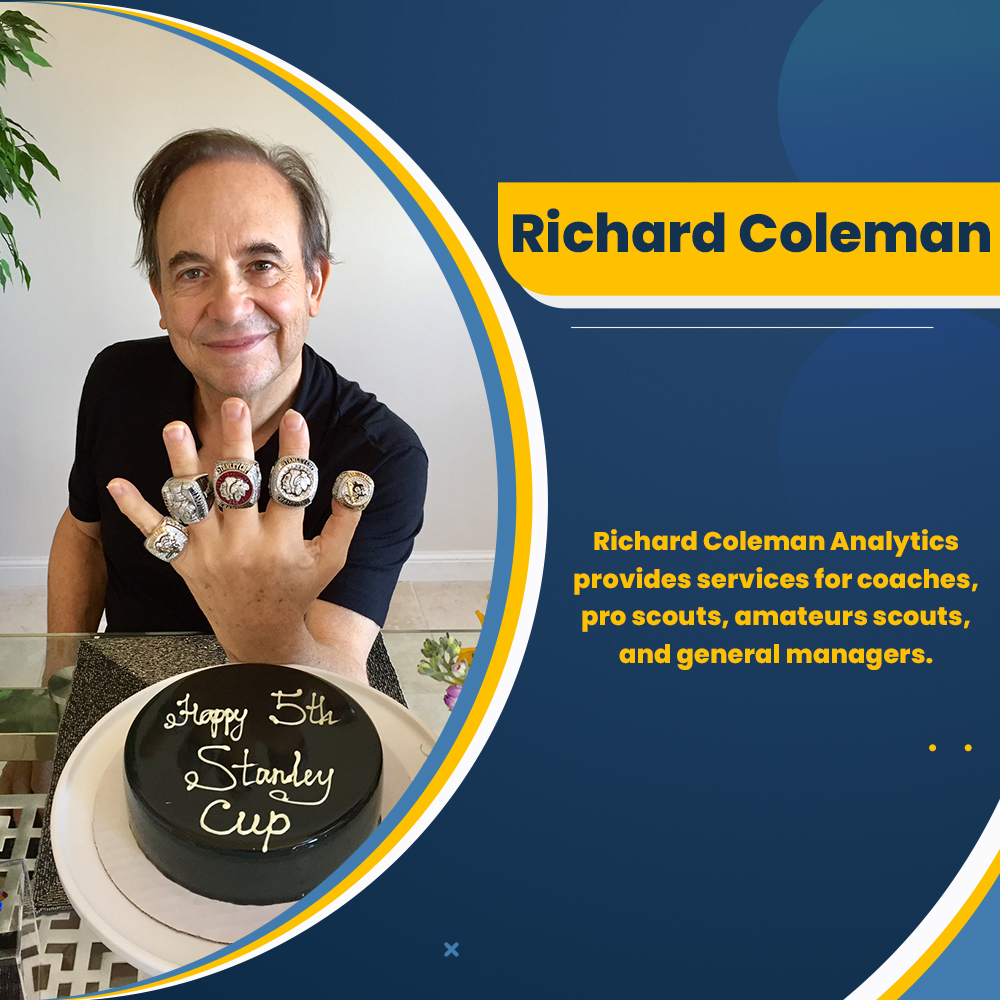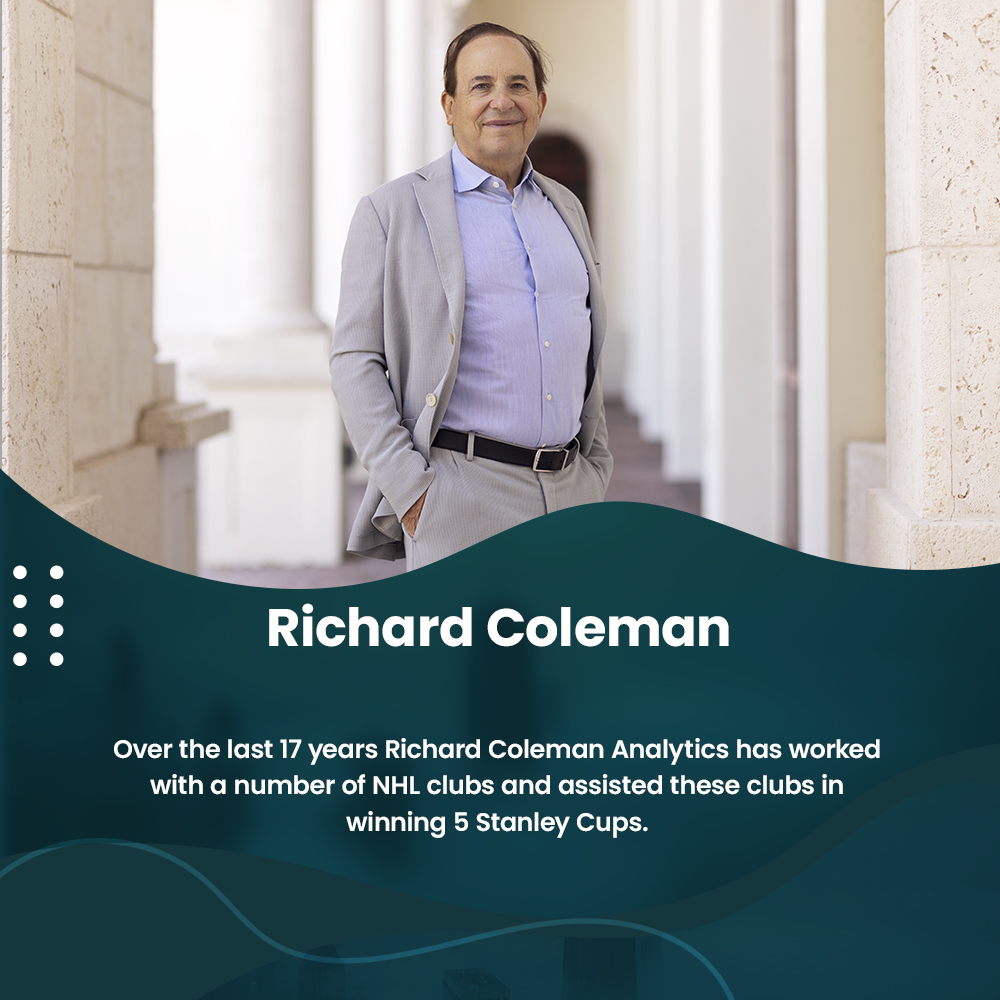About

About Me
Richard M. Coleman, a Boca Raton, FL statistician, is originally from Stamford, CT. In 1979, he moved to San Francisco, California. In 2005, Coleman brought analytics to the National Hockey League. In four weeks, he spoke with 23 NHL clubs to discuss how general managers may utilize analytics to help their teams. Five of those original teams agreed to become customers of Coleman Analytics, Coleman's business. According to industry insiders, Richard's hockey analytics have transformed the field, particularly the methods used to find new players.
Professional Experience and Skills
Coleman and Mike Smith, the former general manager of the Chicago Blackhawks hockey club, worked together to establish Coleman Analytics. Together, they developed an innovative technique to analyze hockey statistics that would provide insightful data that would assist NHL clubs and players in performing better.
Before starting Coleman Analytics, Coleman worked at Harvard University Medical School in Boston, Massachusetts. At Stanford, California, he also had a job at Stanford University Medical School.
Complex computations are involved in Richard's NHL analytics, first presented to the market in 2005. Advanced metric counters include, among others:
Instead of only counting goals when the puck goes in the net, Corsi shows how many times players try to score.
Expected goals: This statistic gauges how risky a team's shots are. For instance, a team's score may be lower if it takes 12 comparatively straight shots at the goal instead of five high-risk attempts. This metric tracks the number of goal-bound shots that were not blocked.
Unblocked shots made toward the net are counted in this statistic.
Fenwick: This statistic is similar to Corsi, except that blocked shots are not considered. Fenwick only records shots that land in the goal or are stopped in their tracks.
PDO: This statistic emphasizes the other metrics and measures their applicability in the actual world. PDO determines a game's on-ice shooting and saves percentage. This indicator establishes how fortunate or unlucky a team is. The success of a team's high-risk shot is seen as more the result of chance than ability if the ball bounces off a stanchion and into the goal.
To address issues in the real world, statisticians gather, assess, and analyze data and apply statistical approaches to it. Richard Coleman decided to concentrate his professional experience on the sport of hockey. Coleman created software programming with Mike Smith to get more detailed data. Monitoring individual and team performance is simpler when hockey games are broken down into numerous tiers.
Nature of Hockey Analytics
For more than 17 years, Coleman Analytics has assisted hockey organizations' general managers, coaches, professional scouts, and amateur scouts in making better decisions. Advanced statistical techniques are used in hockey analytics to assist in anticipating results.
Data gathering and analysis of its potential value are worthwhile activities that result in significant discoveries. Because of this, many NHL general managers and coaches need to be more active in the methods and applications of analytics. Richard and Mike Smith also safeguard business statistics data and approaches for using it to analyze teams and players. Coleman only works with a few hockey organizations, making the stats even more important since they are only available to a select few.
Math is used in the sophisticated area of analytics to look for patterns that could otherwise go unnoticed. Certain patterns, like the ones mentioned above, may provide statistics that have obtained meaningful context.
Coleman has collaborated with the NHL club in Chicago for many years to forecast results and progressively alter the team's practice and playing method. Hockey fans may learn more about the games thanks to analytics. Nevertheless, exact measurement components are often kept confidential.
Richard Coleman Accomplishments
Richard Coleman has won the Stanley Cup with the Blackhawks and other hockey clubs five times. The NHL club that prevails in the postseason receives this coveted prize. This prize, given to a professional sporting franchise in North America, was commissioned in 1892 by Lord Stanley of Preston, the Governor General of Canada. Coleman has also published two novels.
Hobbies
While the NHL and Richard are not discussing team statistics, Richard Coleman is the founder of Coleman Consulting Group pursues his interests in other sports. While he is skiing, he feels liberated, which he likes. Tennis gives a different kind of independence, which he also likes. Unsurprisingly, Coleman's life is likewise heavily influenced by hockey.
Baseball and soccer are two more sports that Coleman finds very interesting. Coleman is an energetic guy who has always enjoyed athletics. He also plays the guitar and is a musician. When Coleman was a young kid, he first realized how much he loved his hobbies.


